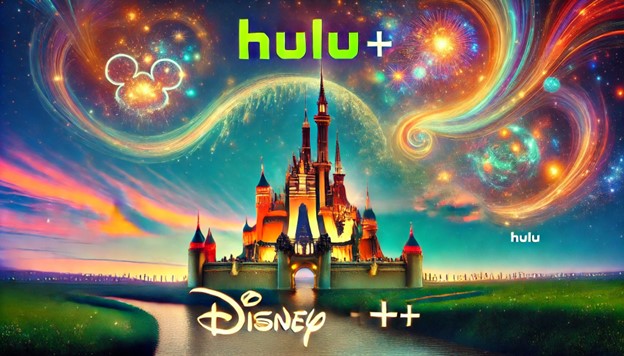On August 8, 2024, The Walt Disney Company (DIS) saw its stock decline by 4.5%, despite posting a strong quarterly performance that surpassed both earnings and revenue expectations. This downturn in share price highlights the market’s concerns over slowing momentum in one of Disney’s key revenue drivers: its theme parks. While Disney achieved its first-ever profit in its combined streaming platforms, the struggles in its Experiences segment, particularly the theme parks, cast a shadow over these financial victories.
Strong Earnings But Market Reacts Negatively
Disney reported earnings of $1.39 per share for the three months ending in June 2024, significantly beating the consensus estimate of $1.19 per share. The company also posted revenue of $23.16 billion, exceeding analysts’ predictions of $23.07 billion. Despite these positive results, the market reacted negatively, with Disney’s stock sliding 4.5% on the day of the announcement.
This drop highlights the complex dynamics at play for Disney, where strong financial results in some areas are being overshadowed by challenges in others. Specifically, investors are concerned about the future of Disney’s theme parks, a crucial part of the company’s overall success.
First-Ever Streaming Profit: A Silver Lining
Amid the mixed earnings report, one of the standout successes was Disney’s streaming segment, which includes Disney+, Hulu, and ESPN+. The company reported its first-ever profit from these combined platforms, generating $47 million in operating income. This marks a significant milestone, especially considering the challenges the streaming industry has faced in recent years, with increasing competition and rising content costs.
This achievement follows a previous quarter where Disney posted a profit in its core streaming business, specifically from Disney+ and Hulu. The growth in streaming profitability is a positive sign for the company as it continues to invest in this segment. However, the enthusiasm around this win was tempered by the underperformance of the theme parks, which remain a more substantial contributor to Disney’s bottom line.

Theme Park Slowdown: A Cause for Concern
The Experiences segment, which includes Disney’s six theme parks and a cruise line, experienced a 3.3% decline in operating income, dropping to $2.22 billion. This segment is vital for Disney, as it contributes approximately 70% of the company’s operating profit. The slowdown in this area has raised concerns among investors, particularly because theme parks have historically been a reliable source of revenue, especially during and after the pandemic years when they saw a surge in demand.
Bob Iger, Disney’s Chief Executive Officer, acknowledged the challenges in the theme park segment during the earnings call. He attributed the decline to a “moderation of consumer demand” that exceeded the company’s previous expectations. Iger pointed out that lower-income consumers are feeling “a bit of stress,” leading to decreased attendance at the parks. Additionally, higher-income consumers are traveling internationally more frequently, further impacting domestic park visitation.
This slowdown is particularly troubling for Disney, as theme parks have been a cornerstone of its revenue model. The decline suggests that the company may face ongoing challenges in this segment, especially if economic conditions continue to put pressure on consumers.
Stock Performance: Struggles Continue
The decline in Disney’s stock on August 8 is part of a broader trend. Over the past six months, Disney shares have fallen by 22%, and they are down a staggering 57% from their peak in 2021. This significant drop reflects broader concerns about the company’s ability to navigate the challenges it faces, from streaming competition to the recent theme park slowdown.
Investors are clearly wary, despite the company’s efforts to pivot and adapt to the changing media landscape. The drop in share price following an otherwise strong earnings report indicates that the market is looking for more than just positive numbers; it’s seeking reassurance that Disney can sustain growth in its core business areas.
Looking Ahead: Challenges and Opportunities
As Disney moves forward, it faces both significant challenges and opportunities. The slowdown in its theme parks is a critical issue that the company will need to address, particularly as it continues to rely heavily on this segment for a large portion of its profits. At the same time, the success of its streaming platforms offers a glimpse into a potential growth avenue, especially if Disney can continue to scale profitability in this area.
In the coming months, all eyes will be on how Disney navigates these dual challenges. Will the company be able to reinvigorate its theme park business, or will the streaming success be enough to offset the broader concerns? Investors and analysts alike will be closely monitoring these developments, as the answers will have significant implications for Disney’s future.










